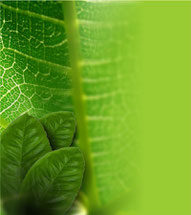Herbs - Medicinal Plants
Tea health benefits
Medicinal properties attributed to Tea plant. Benefits of Tea. Uses, warnings about its use (contraindications). Preparation and dosage of Tea. Health benefits.
Health benefits attributed to tea

The xanthic bases, especially caffeine, have stimulant effects on nervous and cardiorespiratory systems.
Theophylline and caffeine to a lesser extent, have a positive inotropic action, and increase the frequency and coronary cardiac output.
The theobromine and theophylline induce smooth muscle relaxation, especially at bronchial, urethral and biliary tract. They stimulate muscle contraction and are diuretic.
Flavonoids and proanthocyanidols presented in tea are responsible for their vitamin P actions (venotonic, vasoprotective). Tannins are astringent.
It is also slightly hypolipidemic and antiplatelet. There is clinical evidence that tea acts as a cancer preventative.
Tea consumption it´s prescribed in psychophysical asthenia, diarrhea, bronchitis, asthma and as adjunct in the treatment of overweight, arteriosclerosis and hyperlipidemia. Tea
extracts are commonly used topically, as well as the caffeine, in creams and gels to reduce local fat deposits.
Uses of Tea
Warnings on the use of tea
Tea consumption is contraindicated in gastritis, peptic ulcer, anxiety, insomnia, tachycardia.
The use of tea may cause nervousness, insomnia, tachycardia, extrasystoles, polyuria. Tannins can cause gastric distress, nausea and vomiting when ingested highly concentrated
infusions.
Like coffee, tea may be addictive.
Preparation and Dosage
Tea is taken as an infusion or in capsules for internal use.
Prepare the infusion by adding one teaspoon of tea leaves or the powdered tea equivalent, on a boiling water cup and let stand for 10 min.Caffeine is completely removed after 3 min.One capsule
contains 100 to 500 mgTake 3 cups of tea a day.
<< see also Tea properties and content...
Other medicinal plants
Medicinal properties attributed to Tea plant. Benefits of Tea. Uses, warnings about its use (contraindications). Preparation and dosage of Tea. Health benefits.

 Pharmacognosy´s topics - Medicinal plants
Pharmacognosy´s topics - Medicinal plants















Write a comment